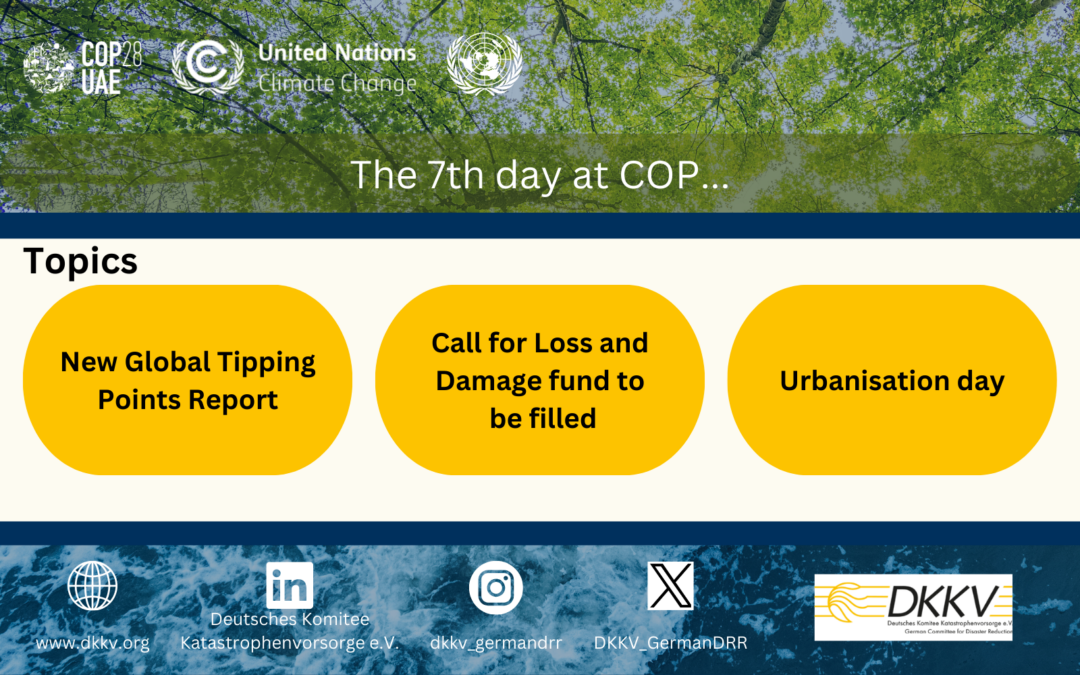Presentation of the new Global Tipping Points Report
The new tipping point report by the University of Exeter’s Global Systems Institute was compiled by 200 scientists from over 90 organisations in 26 countries and presented at COP28 on 6 December.
The report identifies various tipping points: critical thresholds beyond which the climate system can change abruptly and irreversibly. These will both accelerate the climate crisis and cause irreversible damage to ecosystems. The temperatures at which tipping points are reached are difficult to determine; the critical global warming for the melting of the Greenland ice sheet is between 1-3 °C. At a current global warming of 1.2 °C, the melting of the ice sheet is probably no longer reversible, which would have a strong impact on other ecosystems.
To overcome the challenges posed by these tipping points, the report formulates various recommendations for action and positive tipping points.
You can read the full report here.
Sources: Global Tipping Points, Deutschlandfunk
Activists stand up for the Loss & Damage Fund
Climate activists are holding demonstrations to call for the Loss & Damage Fund to be filled.
Pledges to the fund for climate victims currently amount to around 700 million euros. The activists are contrasting this with 4 trillion US dollars in yearly profits from the fossil fuel industry. They are calling for more money to be made available for the damage caused by the release of CO2.
Above all, the record number of fossil fuel lobbyists at COP28 is being criticised. This sends the wrong signals to governments and the economy.
Source: Euronews
Urbanisation Day
Cities are responsible for more than 70 per cent of global CO2 emissions. At the same time, around 90 per cent of cities are at risk of sea level rise and storms, and their inhabitants are exposed to temperatures 10 degrees higher than those in rural areas. It is therefore essential that they have the right policies in place to reduce CO2 emissions and withstand more severe flooding, heatwaves and droughts.
The outcome of the ministerial meeting on urbanisation and climate change at COP28 is a “Joint Outcome Statement on Urbanisation and Climate Change”. This is a 10-point plan to mainstream climate action at different levels of government and ensure that sufficient funding is channelled to cities to adapt to climate change. This declaration is supported by over 40 ministers for the environment, urban development and housing.
Source: COP28


